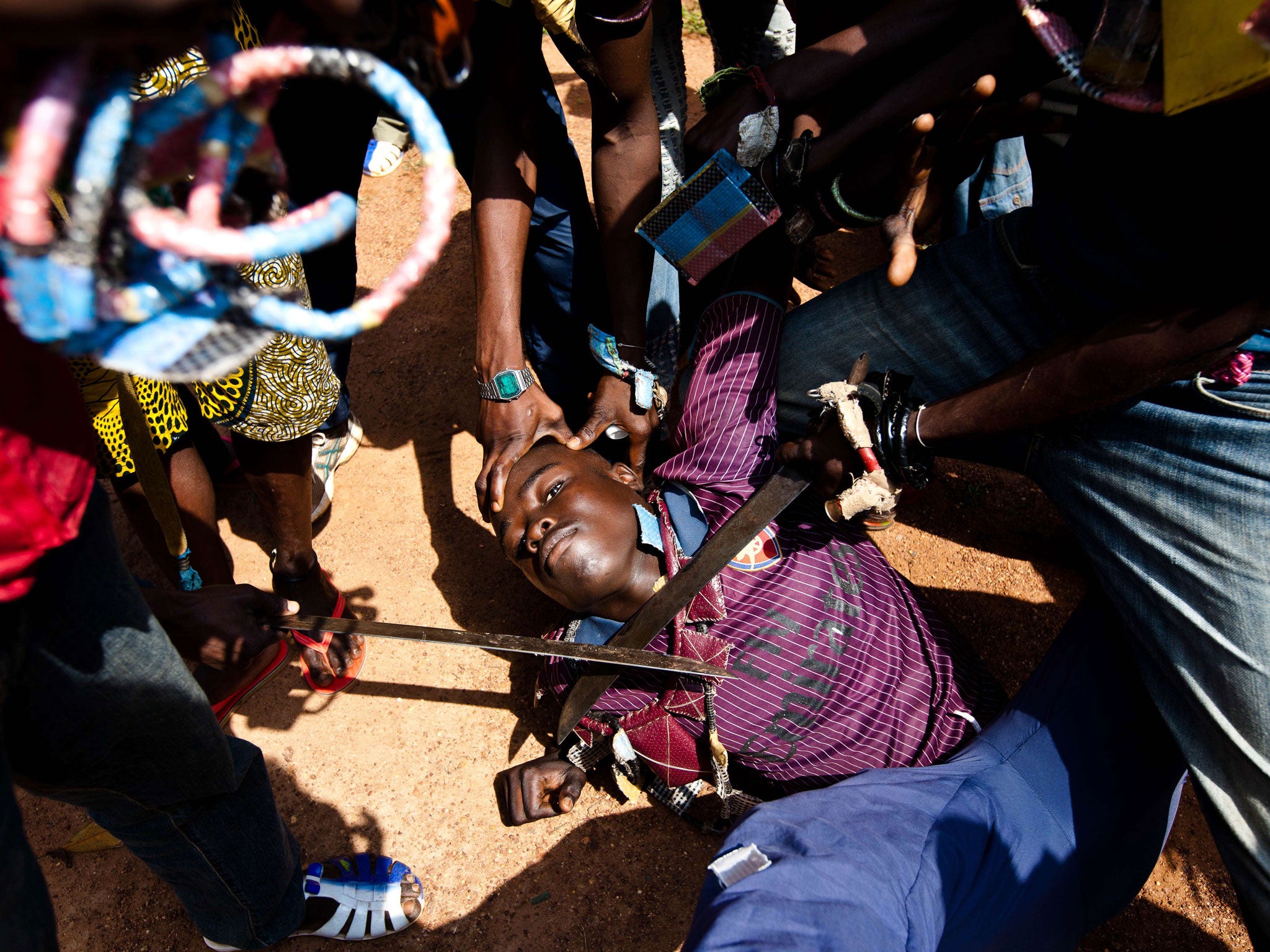France to ask allies for help in Central Africa
It wants troops or logistical aid to head off a possible genocidal civil war

Your support helps us to tell the story
From reproductive rights to climate change to Big Tech, The Independent is on the ground when the story is developing. Whether it's investigating the financials of Elon Musk's pro-Trump PAC or producing our latest documentary, 'The A Word', which shines a light on the American women fighting for reproductive rights, we know how important it is to parse out the facts from the messaging.
At such a critical moment in US history, we need reporters on the ground. Your donation allows us to keep sending journalists to speak to both sides of the story.
The Independent is trusted by Americans across the entire political spectrum. And unlike many other quality news outlets, we choose not to lock Americans out of our reporting and analysis with paywalls. We believe quality journalism should be available to everyone, paid for by those who can afford it.
Your support makes all the difference.France will ask Britain and other European countries on Monday to send troops or logistical aid to head off a possible genocidal civil war in Central Africa.
The French foreign minister, Laurent Fabius, said on Sunday that two European Union countries were considering sending soldiers to bolster a 1,600-strong French force which is trying to end an anarchic and murderous conflict between Muslim and Christian communities in the Central African Republic (CAR).
Mr Fabius did not name the countries which are considering deploying troops but said that Britain, Germany, Poland, Spain and Belgium were ready to supply logistical help to the French force.
"Two of them are looking at the possibility (of sending troops). I hope that they will say yes," Mr Fabius told Europe 1 radio. He said that he would be asking for a "stronger, more solid" European response to the crisis in Central Africa when EU foreign ministers meet in Brussels on Monday.
"I would not be shocked if the Europeans agree to do more," he said.
Two French paratroopers were killed last Tuesday in Bangui, the capital of the CAR while trying to keep apart Muslim rebels and Christian vigilante groups. President Francois Hollande arrived for a brief visit on the same day.
It emerged on Sunday that a large force of Muslim rebels had invaded the capital's' airport during Mr Hollande's visit and penetrated to a few yards from the building were the French president was talking to local politicians. After a stand-off with French troops, the rebels departed without firing a shot.
The mainly muslim Seleka (alliance) rebels, including many fighters from Chad and Sudan, installed Muslim President in the 80 per cent Christian country last March. President Michel Djotodia rapidly lost control of his forces who have since been accused of a series of savage, random attacks on Christian civilians.
Christian vigilante groups have made revenge raids on Muslim communities in recent weeks. Fighting and attacks on civilians in Bangui claimed more than 500 lives in four days just before the French force arrived nine days ago.
The violence has since abated but attempts by the French, and an African peacekeeping force, to disarm both sides have been only partially successful.
Half the 4,800,000 population of the CAR is said to be in need of humanitarian aid. Over 1,000,000 people face severe food shortages or famine.
Domestic support for intervention in France has slumped since the two paratroopers died. On Saturday, Mr Hollande made an uncharacteristically impassioned defence of his decision to launch a second military operation within one year in a former French African colony. Neither the operation against Islamist rebels in Mali last January, nor the present action in the CAR, should be compared with post-colonial interventions in the past, he said.
"Many people are asking what we are doing there," he said. "Well, it's our role. We have a history. We have values. There have been many French military interventions in Central Africa in the last 30 or 40 years. They were always to defend dictators or to depose them. I prefer to act to defend peoples."
In his radio interview on Sunday, Mr Fabius rejected suggestions that the French intervention had been one-sided - disarming the Muslim rebels and leaving Muslim communities open to revenge attacks by Christian militias.
"The Seleka (Muslim rebels) have many weapons, including heavy weapons," he said. "So our first task was to seize these heavy weapons. But we are also ordering the Christians to give up their weapons. It is an impartial disarmament."
Video: South Sudan President: "Attempted coup" defeated
Join our commenting forum
Join thought-provoking conversations, follow other Independent readers and see their replies
Comments